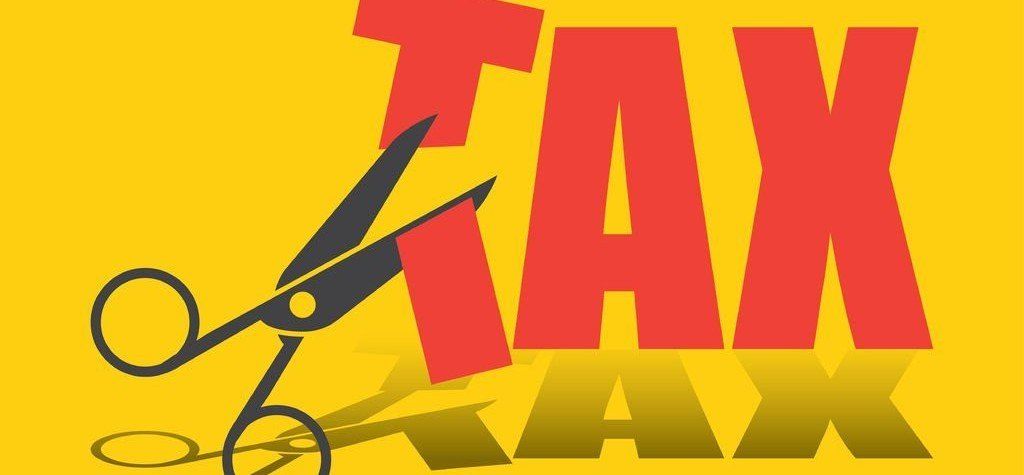How regular folk can pay less tax (legally!) – Issue 1
- by Kathryn Webb
- •
- 05 Feb, 2018
- •

Getting a second job
Often when people think about tax planning and paying less tax they think of the super rich and offshore accounts in the Cayman Islands, but actually most people could benefit from some sort of tax planning.
There are so many nuances in tax law that not all incomes are treated equally. Now, whilst most of us will know that income from ISAs and Premium Bonds are tax free, that really is just the tip of the iceberg. For example, did you know that you pay different rates of tax on income from employment than you do from self-employment? Are you aware that you also have different nil rate bands for different types of income? Did you know that the same trade will pay different tax depending on it’s legal structure? Have you heard you can transfer some of your unused basic rate allowance to your spouse? Did you know there are ways to increase your basic rate tax band? And the list goes on…it seems crazy right? But *this* is tax law for you, and those who pay it no attention will most likely end up paying more tax than they need to. There isn’t enough time in this article to cover all these areas, but what I want to do is give you a brief highlight of one of the particularly interesting ones.
Getting a second job to pay less tax. This feels counter intuitive right? Surely if you get a second job your effective tax rate will increase? Well just bear with me and you’ll see what I mean. There are two ways we pay tax on our earnings, one is income tax and the other is national insurance. Your tax thresholds apply to your total income, so your income is aggregated to work out your income tax. National insurance however, is calculated per employment, with only profit from self-employment being aggregated. Let me run through an example and you will see what I mean…
Ben works as a fitness instructor, and is employed by ‘Fat2Fit Gyms’ for 20 hours per week at £12 per hour. His annual earnings from that job are £12,480. He will pay a little basic rate tax as he is above his personal allowance of £11,500*, he will also pay employees national insurance on his earnings above £8,164*. His tax liability will be as follows:
Income tax (£12,480 - £11,500 x 20%) £196
National Insurance (£12,480 - £8,164 x 12%) £517.92
Total tax £713.92
Average effective tax rate is 5.7%
Ben realises that he probably can’t afford to sustain himself on part time wages so decides he needs to increase his work so that he may earn more. Because Ben is a fabulous fitness instructor he is in huge demand. He has been offered more hours at with his current employer ‘Fat2Fit Gyms’, as well as being head hunted by another leisure club ‘Fit Bod Fitness’. Both offers are for a further 20 hours work, so let’s look at the tax implications of his decision.
Option 1 – all 40 hours with ‘Fat2Fit Gyms’
Total gross earnings £24,960
Income tax (£24,960 - £11,500 x 20%) £2,692
National Insurance (£24,960 - £8,164 x 12%) £2,015.52
Total tax £4,707.52
Average effective tax rate is 18.9%
Option 2 – his original 20 hours with ‘Fat2Fit Gyms’ and another 20 hours with ‘Fit Bod Fitness’
As in the original example Ben would still pay the £713.92 tax on his original earnings, but he would also pay tax on his additional job as follows:
Income tax (£12,480 x 20%, as he has already used his tax free allowance) £2,496
National Insurance (£12,480 - £8,164 x 12% he gets another NI threshold) £517.92
Total tax £3,727.84
Average effective tax rate is 14.9%
That’s nearly a thousand pounds saved on exactly the same earnings! And just look at the effective tax rate between the two options 18.9% and 14.9%, that’s quite a substantial difference. If Ben split his hours over three employers equally then he wouldn’t pay any national insurance at all**
Of course you should never let the tax planning process make decisions for you, but it is something you should be aware of. You need to be able to make informed decisions. In this example there may be practical reasons why Ben would not be able to undertake option 2 i.e. his work hours may clash, or his contract of employment may prevent him from working for a competitor.
There are practical advantages too, by not having all his eggs in one basket he will have a greater job security. And just imagine if his second job was starting up his own business, then he would have regular income from his employment whilst establishing his client base, as well as all the tax advantages (in fact the national insurance rate is even lower for self-employed people, and he may be able to offset some of his expenditure against his tax too)
As previously mentioned, this really is the tip of the iceberg, so if you feel you could benefit from some tax planning advice, get in touch today!
* Based on 17/18 tax rates
** Please be aware there are potential state pension implications of not making the minimum national insurance contributions

The better your record keeping, the more likely your accounts are to be accurate. The more accurate your accounts, the more likely you are to pay the correct amount of tax and not end up overpaying or getting into difficulties with HMRC. That's why I thought I would share my top tips for keeping your records in good order.
- Regularly collate your records. It doesn't matter too much how or where you keep your paperwork, but make sure every time you are given a piece of paperwork to do with your business you do actually store it somewhere safe, with the rest of your business records. If you travel a lot, this may mean having a folder in your vehicle which you empty periodically into your main accounts folder. It may be a shoe box under the bed, a bag hanging up in the coat cupboard, or even a fruit bowl in the kitchen, whatever works for your. Whatever, will ensure you are regularly collating your business records. Missing paperwork is one of the items that can really increase accountancy fees, not to mention it is one of the biggest vulnerabilities during a tax enquiry.
- If in doubt, keep the receipt. The amount of times clients have told me they didn't keep the paperwork as they weren't sure if they could put the item in the accounts. My advice is to keep paperwork on these types of transactions, then your accountant can let you know what to keep and what can be binned. Without the receipt, it's very difficult to evidence your transaction which can prove problematic in the event of an investigation.
- Filing.
It's not everyone's cup of tea, but if you can file your receipts often and in a sensible order, then it will make the data entry so much easier. So whether you do your own book-keeping or want us to do it for you, you will save time or money.
- Timing.
The sooner you do your book-keeping after the end of your accounting period, the more sense it will make and the easier you will find it. I know lots of clients put it off to the last minute but then they are left scratching their heads, trying to remember what was going on in the business over a year ago, and that can prove incredibly challenging! I promise you, the prompter you are with this, the more time you will save.
- Use an invoicing app . This can really help keep track of your sales, but also who has paid you and who still owes you money. It can be done at the push of a button as you go, using your phone, so there is no need to set aside Sunday evenings to prepare all of your invoices! Prompt invoicing will also see prompter payment and better cash flow.
- Electronic records . Try to keep electronic copies of as many of your records as possible. If you have the time, then I would definitely recommend bulk scanning paperwork to ensure you never lose a document. If you use an invoicing app you will already have pdfs of your sales invoice. Bank statements are easy to download and many purchase receipts are electronic these days. I would always recommend keeping your data entry electronically. It doesn't have to be an expensive software package, and depending on the type and quantity of transactions an Excel template may well suffice.
- Back up your data . Whether it's invoices, estimates, customer emails, purchase receipts, data entry files, book keeping software, payroll details, whatever electronic records you have, ensure you have an off site back up to protect you should your computer crash or in the event of a fire or theft. I personally recommend daily automatic back ups, but it really does depend on the nature of your business.


